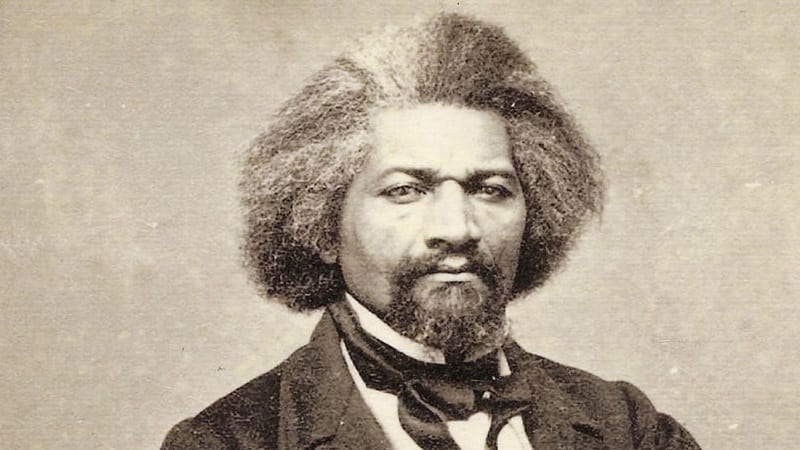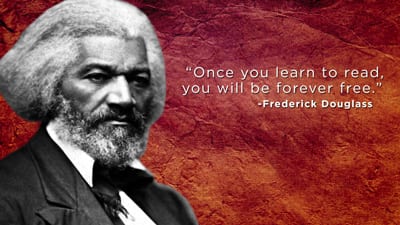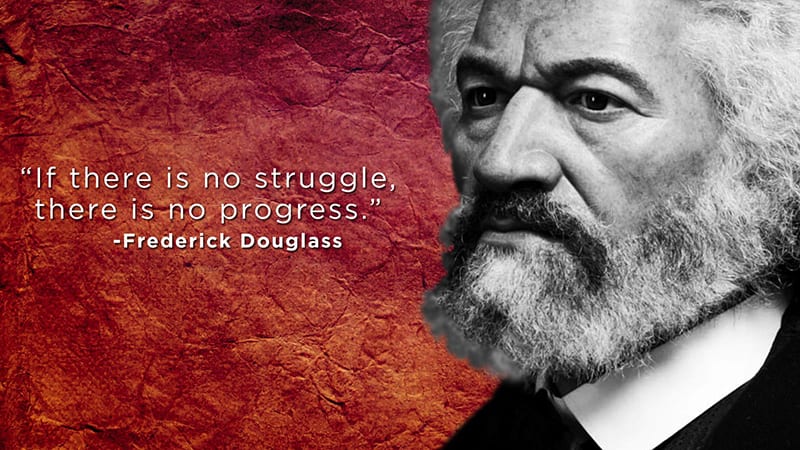The Life of Frederick Douglass

Frederick Augustus Washington Bailey, who was born into slavery in Talbot County, Maryland, in 1818, became one of the most famous intellectuals of his time. His journey from an enslaved child, separated at birth from his mother, to one of the most articulate orators of the 19th century, was nothing short of extraordinary. In defiance of a state law banning slaves from being educated, Frederick, as a young boy, was taught the alphabet and a few simple words by Sophia Auld, the wife of Baltimore slaveholder Hugh Auld. Frederick’s lessons ended abruptly one day when he heard Auld scold his wife, telling her that if a slave knew how to read and write it would make him unfit to be a slave. From that moment on, Frederick knew that education would be his pathway to freedom.
“I didn’t know I was a slave until I found out I couldn’t do the things I wanted. ”Frederick Douglass
At the age of 20, after several failed attempts, he escaped from slavery and arrived in New York City on Sept. 4, 1838. Frederick Bailey, who changed his last name to Douglass soon after his arrival, would later write in his autobiography, “A new world has opened upon me. Anguish and grief, like darkness and rain, may be depicted, but gladness and joy, like the rainbow, defy the skill of pen or pencil.”

After settling in the northeast with his wife, Anna, the man who would be forever known to the world as “Frederick Douglass” dedicated his life to the abolitionist movement and the equality of all people. In doing so, Douglass went on to become a great writer, orator, publisher, civil rights leader and government official. Douglass authored three autobiographies, with his first and best-known, Narrative of the Life of Frederick Douglass, an American Slave, published in 1845. It became an immediate bestseller, and within three years was reprinted nine times, translated into French and Dutch, and circulated across the United States and Europe. The Library of Congress named Narrative one of the “88 Books that Shaped America.”

Frederick Douglass, the father of the abolitionist movement, who advised Presidents Abraham Lincoln and Andrew Johnson on the civil war and black suffrage, respectively, has provided our country with lessons that remain relevant and impactful to this day. Throughout his life, Douglass was steadfast in his commitment to break down barriers between the races. His courage, passion, intellect and magnificent written and oratory skills inspired hundreds of the world’s most prominent civil rights activists of the 20th century, as well as pioneers of the women’s rights movement. Douglass will forever be remembered for his passionate work to ensure that America lived up to the ideals upon which it was founded, and guaranteed freedom and equality for all its people.
Click here to apply for the The Frederick Douglass Bicentennial Scholarship Program